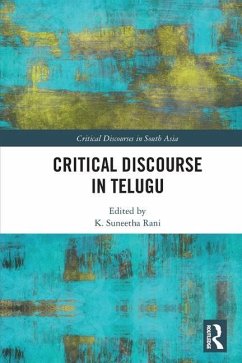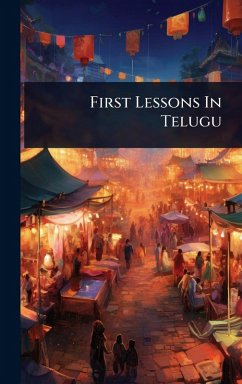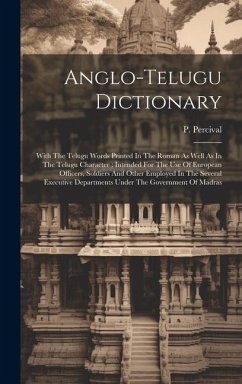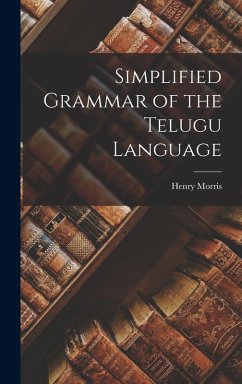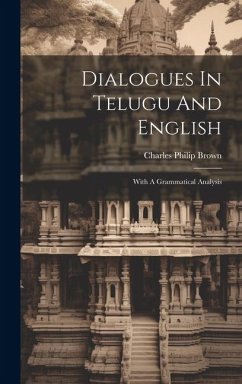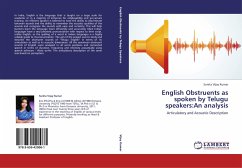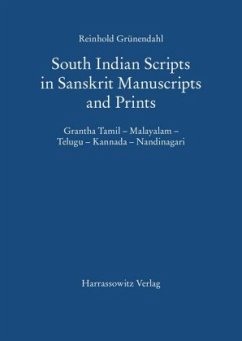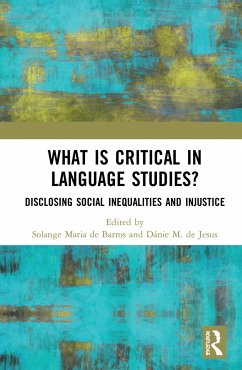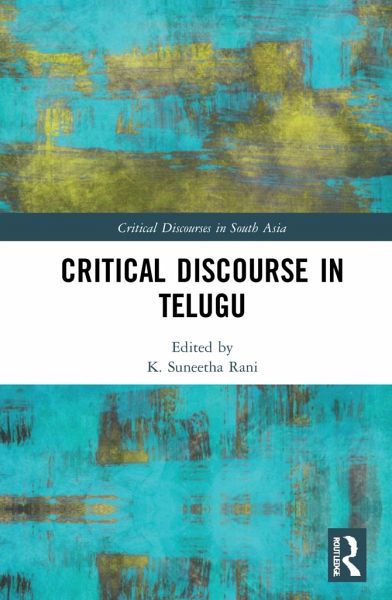
Gebundenes Buch
Critical Discourse in Telugu
Versandkostenfrei!
Versandfertig in 1-2 Wochen

PAYBACK Punkte
84 °P sammeln!




This volume offers crucial insights into the making of Telugu literature and its critical tradition across a century. It brings together English translation of 32 major writings dealing with literary criticism and theory, aesthetic and performative traditions and re-interpretations of primary concepts and categories in Telugu.
K. Suneetha Rani is Professor at the Centre for Women's Studies, University of Hyderabad, India. She taught at the Department of English, Women's University, Tirupati and the Department of English, University of Hyderabad, before joining the Centre for Women's Studies in 2011. Her areas of interest include gender studies, cultural studies, comparative studies, new literatures in English and translation studies. She translates from Telugu to English and vice versa. She has extensively published research articles and translations in English and Telugu. Her major publications in English include Australian Aboriginal Women's Autobiographies: A Critical Study (2006); Flowering from the Soil: Dalit Women's Writing from Telugu (translation of Dalit women's select writings from Telugu, 2012); English in the Dalit Context (co-editor, 2014); Vibhinna: Voices from Contemporary Telugu Writing (co-editor, 2015); A House on the Outskirts and Other Stories (translation of Devarakonda Balagangadhara Tilak's select short fiction from Telugu, 2016); Influence of English on Indian Women Writers: Voices from the Regional Languages (2017); Identities and Assertions: Dalit Women's Narratives (2017); and The Rock That Was Not (translation of Githanjali's select short fiction from Telugu, 2019).
Produktdetails
- Verlag: Routledge India
- Seitenzahl: 294
- Erscheinungstermin: 30. November 2021
- Englisch
- Abmessung: 240mm x 161mm x 20mm
- Gewicht: 608g
- ISBN-13: 9781138550315
- ISBN-10: 1138550310
- Artikelnr.: 62267734
Herstellerkennzeichnung
Libri GmbH
Europaallee 1
36244 Bad Hersfeld
gpsr@libri.de
Für dieses Produkt wurde noch keine Bewertung abgegeben. Wir würden uns sehr freuen, wenn du die erste Bewertung schreibst!
Eine Bewertung schreiben
Eine Bewertung schreiben
Andere Kunden interessierten sich für


